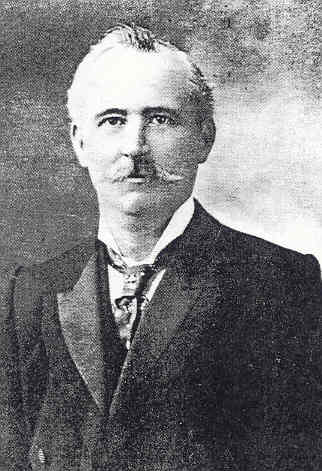
Note: If there are astrological terms that you do not understand consult my glossary.
Introduction
The relevance of the Sun signs is clearly inflated, nobody can really think that the humanity is divided in twelfths.
As I already said in previous articles, if there is so much talking about the Sun signs, it is because this is the only element of one’s birth chart known by all; since the apparent Sun’s motion is constant every year, with only minimum variations, everyone can know one’s Sun sign simply by the day of birth.
This has become a trap for the astrologers.
The mass media require a communication style that is fast, understandable by all and possibly also engaging; this is why many astrologers speak only of Sun signs, or nearly so, giving also suggestions on how to win the hearth of those born under Libra or explaining the preferred pastimes of Virgos.
These informations can be of high quality, but we should keep in mind that we can “have” the Sun in Libra, but we can’t “be” the Sun in Libra, so it wouldn’t be strange at all if, following the suggested courting strategy to conquer a person born under this sign, you met a failure; who knows, maybe the technique suited for Scorpios would have fared better.
There is also nothing strange if you do not recognise in yourself the characteristics commonly attributed to your Sun sign. Evidently other elements of your birth chart are pushing you in another direction, exercising a strong influence (for example the ascendant, the planet ruling it or the Moon).
The Sun at the origin of astrology
It may seems strange, but the use of the Sun so widespread nowadays is a novelty for astrology: the birth of western astrology is dated back at least to the II millennium B.C. among the Babylonians, but only at the beginning of XX century A.D. astrologers begin using the Sun as a main element for investigation our behaviour.
At the beginning the Sun:
1) Is thought to represent our “inner fire”, our vital energy, and consequently it is one of the elements observed to examine the native’s health, his vitality, the chance of reaching old age and the illnesses to which he is more vulnerable. Besides, as any other planet, it is also related to some organs (mainly heart, eyes and the brain).
2) As a symbol for anything royal, majestic, that rules, it is an element observed to evaluate the possibility that the subject receives honours during his life and his relationship with the authorities.
3) It represents the male principle, consequently it helps to evaluate the situation of the father and, for women, the husband (if any).
4) To conclude the Sun, as any other of the main celestial bodies, receives particular meanings according to the house that it rules in the birth chart and also to that where it is posited. This is the most important meaning our star can have in, since it is the particular meaning it has for that individual person and his birth chart. For example in my case the Sun rules the 12th house, so is related to secret enemies and self-undoing; and is also in the 11th house, so it has something to say about my friends as well.
Originally the Sun is an element used to examine the character only in some cases.
In traditional astrology it is usually used this way when it is the celestial body that rules the ascendant (that is, when the ascendant is in Leo, sign ruled by the Sun), when it represents the “significator of manners” of the subject, that is the planet that gives most of the informations on the behaviour of the native, or when it has a tie of any kind with a planet exercising one of these roles, usually by aspect or because that planet is in Leo, the sign ruled by the Sun. It can also be considered very influential on the individual when it is particularly strong in the natal chart, for example because it is conjunct the ascendant or the Midheaven, positions that confer to any astrological element an exceptional general influence.
The current use of the Sun
The current use of the Sun has been introduced by Alan Leo (1860-1917), the father of modern astrology.

Alan Leo (1860-1917)
In truth his real name would be William Frederick Allan but he, clearly excited by his researches, changed his name adopting that of his Sun sign.
He had more reasons than others to do this anyway since, besides the Sun, he had also the ascendant, Saturn, Jupiter and Mercury in this sign.
Leo is an English member of the Theosophical society, a still existing organization that has the objective of spreading as far as possible the interest for esotericism in the humanity, and this greatly affected his relationship with astrology.
Having begun a spiritual path, our Leo desires an astrology that helps his evolution, and regard the astrology practised until that moment, now called “traditional astrology”, as unfit for this purpose mainly for two reasons: to begin he finds it too much focused on the outer life, while he needs something that makes possible to investigate deeply himself in order to know his starting point and find the way most suitable for him to evolve; besides that he also thinks that it is too deterministic, “fixed”, while he, having undertaken a spiritual path, feels the need for something more flexible, that allows to give different effects to the same influence according to the work done on ourselves and the accomplished evolution level.
So he developed a new astrology, partially influenced by Vedic astrology, probably due to his activity inside the Theosophical society, it too largely influenced by the Indian spiritual traditions. But we have to keep in mind that it has been a risky operation, because Vedic astrology is different from the western one, beginning by the zodiac itself, that is a sidereal zodiac, and consequently moved every year according to the precession of the equinoxes, and uses the component of the art in a manner a bit different from our own.
Traditional astrologers, in fact, do not consider these affirmations as correct..
They do not regard traditional astrology as “deterministic”, but as “more accurate”, while they find modern astrology too vague, confused and, sometimes, even less “honest” since, at least for how it is practised by someone, tends to avoid making clear the defects and the insuperable limits of the person.
Traditional astrology may be more “outer focused” but this is because, at least in the past, that was the customers’ greater interest; but even traditional astrology has some ways to investigate on the human behaviour, that are also rather effective. So, in sum, even this has the potential to give a better understanding of ourselves.
Notwithstanding the fact that Leo has been brought to his research by spiritual reasons, I think that it is not a coincidence the fact that his investigations are contemporary to the birth of psychology.
In fact some psychologists, particularly Jung, took an active interest on modern astrology, interest also reciprocated by many astrologers that are much influenced by Jung on their astrological practice. Anyway psychology did not come from nowhere, many reflected on human nature and behaviour before, even if with different methods, and astrology was naturally one of these.
We can affirm that both psychology and modern astrology were stimulated by the desire of a deeper understanding of the human being.
Conclusions
The Sun is only a component, important as it may be, of something much broader.
Any astrologer, that he practices modern or traditional astrology, will never watch only the Sun sign, but he will consider also other factors when he supplies services to his customers, giving accurate answers regarding the specific consultant’s situation.
If you want to have an idea of what an astrologer can do you can give a look to my services.
- The Cat